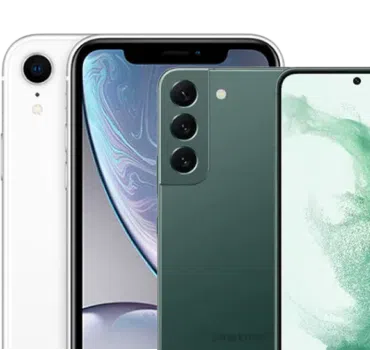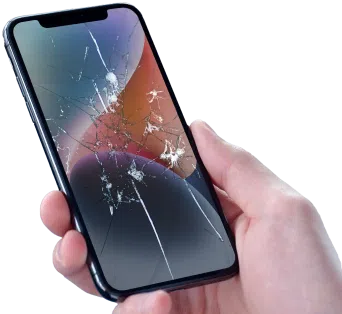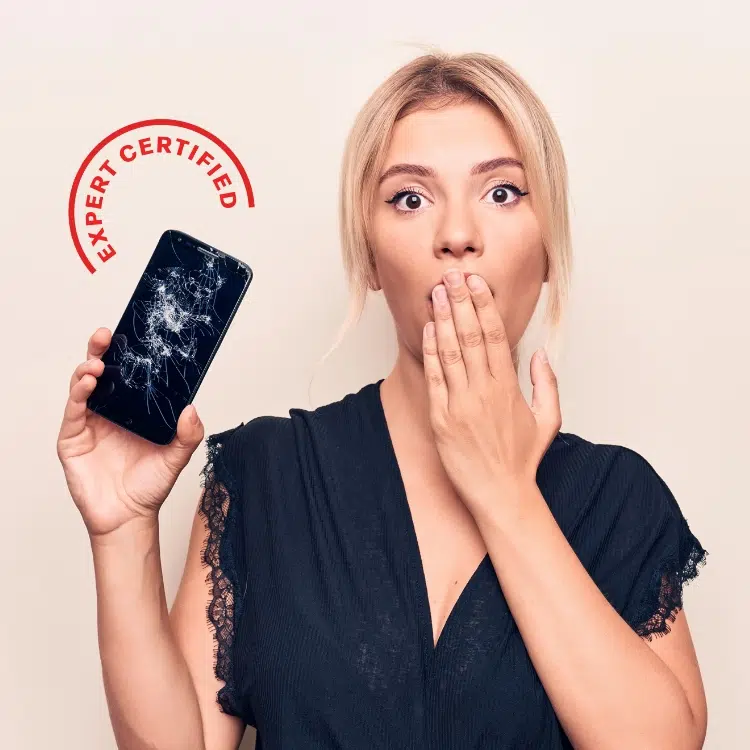
Your iPhone’s battery is more than just a power source—it’s essential for maintaining the smooth, uninterrupted experience Apple devices are known for. But as batteries age, questions often arise: What’s a “good” battery health for an iPhone? How long should your iPhone last on a single charge? And how can you ensure your battery lasts as long as possible?
In this guide, we’ll explore everything you need to know about iPhone battery health, from what qualifies as optimal performance to actionable tips for extending your battery life.
How Long Do iPhones Last When Fully Charged?
The longevity of your iPhone on a full charge depends on its model, battery size, and your usage patterns. Apple has steadily improved battery life with each new release, making newer models like the iPhone 11 series ideal for those who need extended usage times. Battery performance is measured in terms of the hours your device can last under normal conditions, such as browsing, streaming, and messaging.
Here’s a quick reference table to compare popular iPhone models:
| iPhone Model | Battery Capacity (mAh) | Battery Energy (Wh) | Battery Life (Hours) |
| iPhone | 1400mAh | 5.18Wh | ~8:00 |
| iPhone 3G | 1150mAh | 4.25Wh | ~7:00 |
| iPhone 3GS | 1200mAh | 4.44Wh | ~7:30 |
| iPhone 4 | 1420mAh | 5.3Wh | ~10:00 |
| iPhone 4s | 1432mAh | 5.3Wh | ~8:00 |
| iPhone 5 | 1440mAh | 5.45Wh | ~8:00 |
| iPhone 5c | 1510mAh | 5.73Wh | ~8:00 |
| iPhone 5s | 1560mAh | 5.92Wh | ~8:00 |
| iPhone 6 | 1810mAh | 6.9Wh | ~11:00 |
| iPhone 6s | 1715mAh | 6.91Wh | ~10:00 |
| iPhone 6s Plus | 2750mAh | 10.45Wh | ~12:00 |
| iPhone SE (1st Gen) | 1624mAh | 6.21Wh | ~10:00 |
| iPhone 7 | 1960mAh | 7.45Wh | ~12:00 |
| iPhone 7 Plus | 2900mAh | 11.1Wh | ~13:00 |
| iPhone 8 | 1821mAh | 6.96Wh | ~13:00 |
| iPhone 8 Plus | 2961mAh | 10.28Wh | ~14:00 |
| iPhone X | 2716mAh | 10.35Wh | ~13:30 |
| iPhone XR | 2942mAh | 11.16Wh | ~15:00 |
| iPhone XS | 2658mAh | 10.13Wh | ~12:00 |
| iPhone XS Max | 3174mAh | 12.08Wh | ~15:00 |
| iPhone 11 | 3110mAh | 11.91Wh | ~17:00 |
| iPhone 11 Pro | 3046mAh | 11.67Wh | ~18:00 |
| iPhone 11 Pro Max | 3969mAh | 15.04Wh | ~20:00 |
| iPhone 12 mini | 2227mAh | 8.57Wh | ~15:00 |
| iPhone 12 | 2815mAh | 10.78Wh | ~17:00 |
| iPhone 12 Pro | 2815mAh | 10.78Wh | ~17:00 |
| iPhone 12 Pro Max | 3687mAh | 14.13Wh | ~20:00 |
| iPhone 13 mini | 2438mAh | 9.34Wh | ~17:00 |
| iPhone 13 | 3240mAh | 12.41Wh | ~19:00 |
| iPhone 13 Pro | 3095mAh | 11.97Wh | ~19:00 |
| iPhone 13 Pro Max | 4352mAh | 16.75Wh | ~22:00 |
| iPhone 14 | 3279mAh | 12.68Wh | ~20:00 |
| iPhone 14 Plus | 4325mAh | 16.68Wh | ~26:00 |
| iPhone 14 Pro | 3200mAh | 12.38Wh | ~23:00 |
| iPhone 14 Pro Max | 4323mAh | 16.68Wh | ~29:00 |
| iPhone 15 | 3349mAh | 12.98Wh | ~20:00 |
| iPhone 15 Plus | 4383mAh | 16.95Wh | ~26:00 |
| iPhone 15 Pro | 3274mAh | 12.70Wh | ~23:00 |
| iPhone 15 Pro Max | 4422mAh | 17.11Wh | ~29:00 |
| iPhone 16 | 3561mAh | 13.7Wh | ~20:00 |
| iPhone 16 Plus | 4674mAh | 18Wh | ~26:00 |
| iPhone 16 Pro | 3582mAh | 13.8Wh | ~23:00 |
| iPhone 16 Pro Max | 4685mAh | 18Wh | ~33:00 |
Note: Battery life estimates are based on video playback times as reported by Apple and other sources. Actual battery life may vary depending on usage, settings, and other factors. For the most accurate and up-to-date information, please refer to Apple’s official specifications.
The actual battery performance of your iPhone depends not only on the hardware but also on how you use it. For example, resource-heavy activities like gaming or streaming 4K videos can drain the battery faster than lighter usage like browsing or texting.
Save up to 50% on a new phone!
Save big when you shop our selection of Certified Pre-Owned phones. 64-point inspection and a limited lifetime warranty for eligible customers*.
Shop now
Tips for Buying Based on Battery Life
- Refurbished Devices: Consider refurbished models for better value, especially for mid-range options like the iPhone 13 Pro Max or iPhone 11. Check for a warranty to ensure quality.
- Current vs. Legacy Models: If you need the latest features (like USB-C, Dynamic Island, or A17/A18 chipsets), invest in the iPhone 15 or 16 series. For solid battery life at a lower cost, stick to older models like the iPhone 13 or 11.
- Prioritize Your Needs: For all-day use without frequent charging, opt for models with a battery life of 15+ hours. If budget is the key factor, balance your choice with refurbished options.
If you’re feeling frustrated by a battery that doesn’t last as long as you need, it might be time to consider an upgrade. You don’t have to splurge on a new device—refurbished iPhones are a great alternative that balances performance and affordability.
How Long Should an iPhone Last in a Day?
On average, most iPhones can last 10 to 12 hours of mixed usage in a day. However, the actual longevity depends on several factors:
- Usage Habits: Heavy gaming or video streaming drains your battery faster than light usage like texting or browsing.
- Battery Health: iPhones with maximum capacity close to 100% will last significantly longer compared to those around 80%.
- Background Activity: Apps running in the background or frequent push notifications can reduce daily battery life.
For example, an iPhone 11 with good battery health should comfortably last a full workday of moderate use. If your iPhone struggles to get through the day, it may be time to replace the battery or consider a refurbished iPhone.
Signal strength also plays a crucial role in daily battery life. If your iPhone is constantly searching for a strong Wi-Fi or cellular signal, it will drain the battery more quickly. Similarly, leaving features like Bluetooth or GPS running when they’re not in use can quietly eat away at your battery. To get the most out of your iPhone, it’s important to regularly check your settings and turn off unnecessary features when they aren’t actively needed.
How To Extend Your iPhone Battery Life
Improving your iPhone’s battery life doesn’t require drastic changes. A few simple tweaks can go a long way:
- Enable Low Power Mode: Reduces background activity and extends battery life.
- Adjust Screen Brightness: Use auto-brightness or manually lower your screen’s brightness.
- Close Unnecessary Apps: Prevent apps from running in the background when not in use.
- Update iOS Regularly: Apple frequently includes battery optimization features in new iOS updates.
- Use Wi-Fi When Available: Cellular data consumes more battery than Wi-Fi.
Your charging habits can also impact how well your battery performs over time. For instance, letting your phone drop to 0% frequently can wear it down faster, as lithium-ion batteries prefer partial charges. Similarly, leaving your iPhone on the charger overnight might seem convenient, but prolonged charging at 100% can cause slight degradation over time.
It’s also worth monitoring which apps are consuming the most power. The Battery Health feature in your iPhone’s settings provides a breakdown of app usage, making it easy to identify energy-intensive processes. By addressing these areas, you can significantly extend your phone’s daily and long-term battery life.
What iPhone Battery Health is Optimal?
Apple considers an iPhone’s battery to be in optimal condition when its maximum capacity is above 80%. Battery health is a percentage reflecting how much charge your battery can hold relative to when it was new.
- Battery Health Above 85%: Indicates strong performance with minor wear.
- Battery Health Above 80%: Still considered optimal and capable of handling daily tasks reliably.
- Battery Health Below 80%: May lead to shorter battery life and inconsistent performance.
For users wondering, “Is 80% battery health good?” the answer is yes—it’s functional but nearing the threshold for a replacement. If your battery drops below 80%, Mobile Klinik can help replace it or assess whether other repairs are needed.
A key reason for keeping battery health above 80% is to maintain consistent performance. Batteries with poor health often cause sudden shutdowns or reduced functionality, making even light tasks feel frustrating. With a healthy battery, you’ll be able to enjoy your iPhone without the worry of frequent recharging or interruptions.
Is your phone not working?
Get a free phone diagnosis in 5 minutes when you visit us in-store.
Learn more
How Long Do iPhone Batteries Last Over Time?
iPhone batteries are designed to retain up to 80% of their original capacity after 500 charge cycles, which typically translates to about two years of daily use. Factors like charging habits and environmental conditions can affect this timeline:
- Frequent Full Drains: Avoid letting your battery drain to 0% frequently, as it accelerates wear.
- Extreme Temperatures: Heat and cold can degrade battery capacity over time.
- Third-Party Accessories: Non-certified chargers can harm battery health.
With regular use, you can expect your iPhone’s battery to last a few years before it shows signs of significant degradation. If your device struggles to hold a charge after just a few hours, replacing the battery can breathe new life into your phone.
Ready for a Better Battery Life?
Understanding your iPhone’s battery health ensures you can get the most out of your device. Whether your battery is at 80% or nearing its end, solutions like optimized settings, replacements, or even upgrading are all great options.
Explore our collection of refurbished iPhones or visit your nearest Mobile Klinik location to restore your battery’s performance today.



